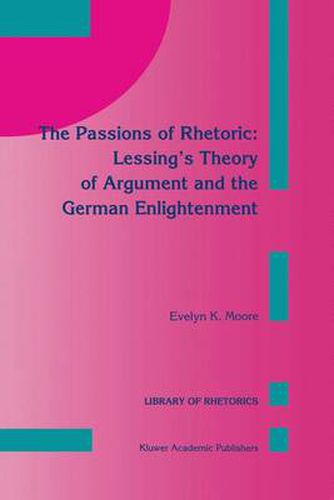Readings Newsletter
Become a Readings Member to make your shopping experience even easier.
Sign in or sign up for free!
You’re not far away from qualifying for FREE standard shipping within Australia
You’ve qualified for FREE standard shipping within Australia
The cart is loading…






This title is printed to order. This book may have been self-published. If so, we cannot guarantee the quality of the content. In the main most books will have gone through the editing process however some may not. We therefore suggest that you be aware of this before ordering this book. If in doubt check either the author or publisher’s details as we are unable to accept any returns unless they are faulty. Please contact us if you have any questions.
The goal of this book is to ascertain Lessing’s views on argumentation and rhetoric. I intend to establish that these views constitute a systematic and coherent theory and to argue that for Lessing rhetoric in argument can yield philosophical truth. Analysis of Lessing’s views also sheds light on the general significance of rhetoric in the 18th century. The denial that rhetoric has claims to truth is a long-standing prejudice of Western thought. This position is evident in Kant’s rejection of rhetoric in philosophical discourse. But in my view, the situation in the 18th century in Germany was somewhat more complex. Rhetoric did not die a quiet death but was very much alive in polemical tracts, and Lessing was a pivotal figure in a culture dominated by argument and disputation. I asked myself why and how this polemical age came to an end and how does the rejection of polemics by the 19th century affect our understanding of the 18th century? In the Introduction, I address some of these questions and establish a historical framework for the development of polemics in the 18th century. Another reason this polemical age has traditionally been seen as problematic for the scholars of the period is because argument, disputation and debate cannot be submitted to the same easy analysis as the systematic treatises produced at the end of the century.
$9.00 standard shipping within Australia
FREE standard shipping within Australia for orders over $100.00
Express & International shipping calculated at checkout
This title is printed to order. This book may have been self-published. If so, we cannot guarantee the quality of the content. In the main most books will have gone through the editing process however some may not. We therefore suggest that you be aware of this before ordering this book. If in doubt check either the author or publisher’s details as we are unable to accept any returns unless they are faulty. Please contact us if you have any questions.
The goal of this book is to ascertain Lessing’s views on argumentation and rhetoric. I intend to establish that these views constitute a systematic and coherent theory and to argue that for Lessing rhetoric in argument can yield philosophical truth. Analysis of Lessing’s views also sheds light on the general significance of rhetoric in the 18th century. The denial that rhetoric has claims to truth is a long-standing prejudice of Western thought. This position is evident in Kant’s rejection of rhetoric in philosophical discourse. But in my view, the situation in the 18th century in Germany was somewhat more complex. Rhetoric did not die a quiet death but was very much alive in polemical tracts, and Lessing was a pivotal figure in a culture dominated by argument and disputation. I asked myself why and how this polemical age came to an end and how does the rejection of polemics by the 19th century affect our understanding of the 18th century? In the Introduction, I address some of these questions and establish a historical framework for the development of polemics in the 18th century. Another reason this polemical age has traditionally been seen as problematic for the scholars of the period is because argument, disputation and debate cannot be submitted to the same easy analysis as the systematic treatises produced at the end of the century.